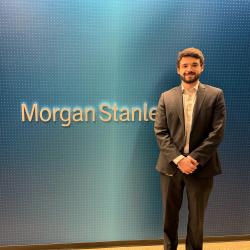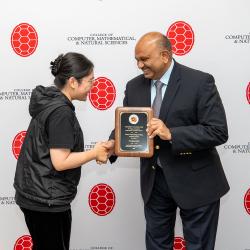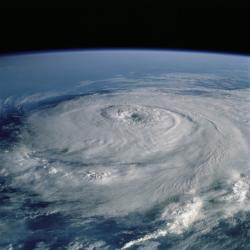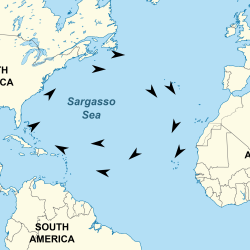22 Faculty Promotions Announced by UMD College of Computer, Mathematical, and Natural Sciences
The University of Maryland College of Computer, Mathematical, and Natural Sciences (CMNS) announced the promotion of 22 tenure-track and professional-track faculty members and the appointment of a College Park Professor, effective July 1, 2016.
Promoted to Professor:
Ian Appelbaum, physics, joined CMNS in 2008. His experimental and theoretical research focuses on semiconductor device physics including spin-polarized electron transport and relaxation mechanisms, electronic properties of two-dimensional semiconductors, and novel phenomena in topological materials.
Alberto Bolatto, astronomy, joined CMNS in 2007. An experimentalist, Bolatto’s interests include extragalactic research in the nearby and distant universe with a focus on the evolution of galaxies through cosmic time. This includes studies of molecular gas and star formation in galaxies, galaxy kinematics and dark matter, the structure of the interstellar medium, and radio and far-infrared observations of atomic and molecular transitions from sources at cosmological distances.
Karen Carleton, biology, joined CMNS in 2006. Carleton’s research interests include the evolution of visual systems and visual communication, genetics of visual system tuning, physical modeling of color signals, and visual discrimination.
Zackaria Chacko, physics, joined CMNS in 2007. A theoretical physicist, his research interests lie in elementary particle physics. He primarily constructs new theories that can explain some of the puzzles of the current Standard Model of particle physics and studies their implications for current and future experiments.
Michael Cummings, biology, joined CMNS in 2003. Cummings’ research, which focuses on computational biology and molecular evolutionary genetics, includes examining patterns and processes of sequence evolution to understand molecular evolutionary mechanisms that bring about biological change, and the application of grid, public and graphics processing unit computing to biological problems.
Amol Deshpande, computer science, joined CMNS in 2005. His research spans "big data", including graph databases, collaborative data science, database query optimization, adaptive query processing and cloud computing. His current research efforts focus on the challenges in managing and querying the inherently imprecise, incomplete and uncertain data generated in environments like sensor networks, data streams, data integration, information extraction and social networks.
Najib El-Sayed, cell biology and molecular genetics, joined CMNS in 2006. His research interests focus on using genomic approaches to investigate the biology of parasitism and host-pathogen interactions, with the ultimate goal of improving understanding of infection and survival mechanisms.
Mohammad Taghi Hajiaghayi, computer science, joined CMNS in 2010. Hajiaghayi's research interests include algorithmic game theory and combinatorial auctions, huge network design, combinatorial optimizations and approximation algorithms, fixed-parameter algorithms, and distributed and mobile computing.
Patrick Kanold, biology, joined CMNS in 2007. He studies the development and plasticity of the brain, specifically how periods of learning and plasticity are initiated and controlled. His work focuses on the development of the central auditory and visual systems using two-photon imaging and electrophysiological approaches.
William Lamp, entomology, joined CMNS in 1985. Lamp’s research interests include the ecology of insects in the human environment, such as integrated pest management of forage crops, ecology of emerging insect pests, and implications of integrated pest management and land use on invertebrates in streams and wetlands.
Carlos Machado, biology, joined CMNS in 2008. His research centers on understanding the processes that generate species diversity and genomic diversity. He conducts research in three basic areas: understanding the genomic basis of species divergence in Drosophila using population genomic and transcriptome data, using comparative genomics and population genomics to study domestication and adaptation in crops and human parasites, and understanding the evolution of the fascinating mutualism between figs and their fig pollinating wasps.
Mihai Pop, computer science, joined CMNS in 2005. His research interests include bioinformatics, genomics, computational biology and software testing. His recent research focuses on the analysis of microbial communities, specifically the microbes that inhabit the human body. Pop recently received funding to redesign the computer science introductory course and incorporates active-learning techniques in his courses.
Niranjan Ramachandran, mathematics, joined CMNS in 1999. His research interests include number theory, algebraic geometry, zeta functions and motives.
Promoted to Associate Professor with Tenure:
Daniel Butts, biology, joined CMNS in 2009. Butts’ research involves developing theories of how neural activity underlies perception in the visual and other sensory systems. He develops computational approaches to be used in tandem with experiments (performed by collaborating experimental labs) that can guide and/or validate these theories.
Hector Corrada Bravo, computer science, joined CMNS in 2010. His research interests include computational genomics and bioinformatics with applications to cancer epigenetics, metagenomics and host-pathogen interaction. He develops methods in data science including visualization, machine learning and computational statistics in response to these applications.
Paul Paukstelis, chemistry and biochemistry, joined CMNS in 2010. His research interests include understanding nucleic acid structure and designing periodic DNA motifs for structural DNA nanotechnology applications. His lab has uncovered a number of DNA base pairing 'oddities' and used these non-canonical motifs to develop new technologies at the emerging interface between biology, materials science and engineering.
Appointed as College Park Professor:
This title is conferred on nationally distinguished scholars or researchers who would normally qualify for appointment as a professor within the university but hold full-time positions elsewhere.
Lennard Fisk, physics, is the Thomas M. Donahue Distinguished University Professor of Space Science at the University of Michigan. He currently serves as chair of the National Academies’ Space Studies Board and previously served as the associate administrator for space science and applications at NASA.
Promoted to Principal Lecturer:
Melissa Hayes-Gehrke, astronomy, joined CMNS in 2004. She is undergraduate director in astronomy and teaches a variety of courses including collisions in space, astronomy in practice and introduction to astronomy. In the astronomy in practice course Hayes-Gehrke developed for non-science majors, students observe asteroids with internet-controlled telescopes and analyze the asteroids’ rotational patterns. In 2013, students in the course made a rare discovery that wowed professional astronomers: a previously unstudied asteroid is actually a pair of asteroids that orbit and regularly eclipse one another. Students in the course have published twelve papers over three semesters.
Thomas Holtz, geology, joined CMNS in 1994. His research interests include the evolution, functional morphology, biomechanics and adaptive trends of major groups of extinct vertebrates, especially theropod dinosaurs; phylogenetic reconstruction of late Mesozoic global paleobiogeography; and important periods of adaptive radiations in the history of terrestrial life. Holtz is director of the College Park Scholars: Science and Global Change program, a member of the Scientific Council of the Maryland Science Center in Baltimore, Md. and a research associate in the Department of Paleobiology at the Smithsonian’s National Museum of Natural History. He teaches a variety of courses including the natural history of dinosaurs, the fossil record of the prehistoric past, and history of Earth and life.
John Merck, geology, joined CMNS in 1999. His research interests include the phylogeny and evolutionary history of the euryapsids, primarily marine reptiles of the Mesozoic Era, and the incorporation of data from computerized tomography scans of fossil specimens in the morphological description of fossil taxa. Merck is director of undergraduate studies in geology and associate director of the College Park Scholars: Science and Global Change program. Merck teaches a variety of courses including an introduction to physical geology, planetary geology, principles of paleontology and vertebrate paleobiology.
Jandelyn Plane, computer science, joined CMNS in 1990. She is director of the Maryland Center for Women in Computing and associate director of the Advanced Cybersecurity Experience for Students (ACES), the Honors College living-learning program in cybersecurity. For 15 years, Plane worked on university computer science capacity building projects in sub-Saharan Africa and Afghanistan. Now, her work focuses on computer science curriculum, pedagogical methods and underrepresented populations in computing. Plane has taught a variety of courses including introduction to information technology, object oriented programming, introduction to computer systems and discrete structures. She currently teaches the foundations of cybersecurity courses is ACES.
Promoted to Senior Lecturer:
Justicia Opoku Edusei, biology, joined CMNS in 1993. She teaches a variety of biological science courses including human anatomy and physiology, biology of reproduction, mammalian physiology, and general endocrinology.
Alan Peel, astronomy, joined CMNS in 2005. His research interests include the dynamics of galaxies and galaxy clusters. He is director of Science, Discovery and the University, a living-learning program in College Park Scholars. Peel teaches a variety of courses including an introduction to physics for life science majors, science and pseudoscience, and an introduction to the solar system. His I-series course on science and fiction of planetary systems is taught every fall.
Media Relations Contact: Abby Robinson, 301-405-5845, abbyr@umd.edu
University of Maryland
College of Computer, Mathematical, and Natural Sciences
2300 Symons Hall,
College Park, MD 20742
www.cmns.umd.edu
@UMDscience
About the College of Computer, Mathematical, and Natural Sciences
The College of Computer, Mathematical, and Natural Sciences at the University of Maryland educates more than 7,000 future scientific leaders in its undergraduate and graduate programs each year. The college's 10 departments and more than a dozen interdisciplinary research centers foster scientific discovery with annual sponsored research funding exceeding $150 million.







